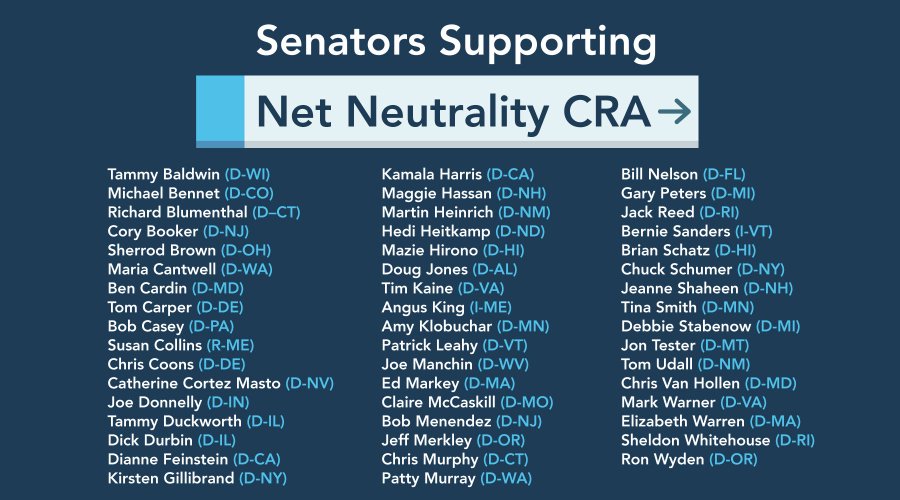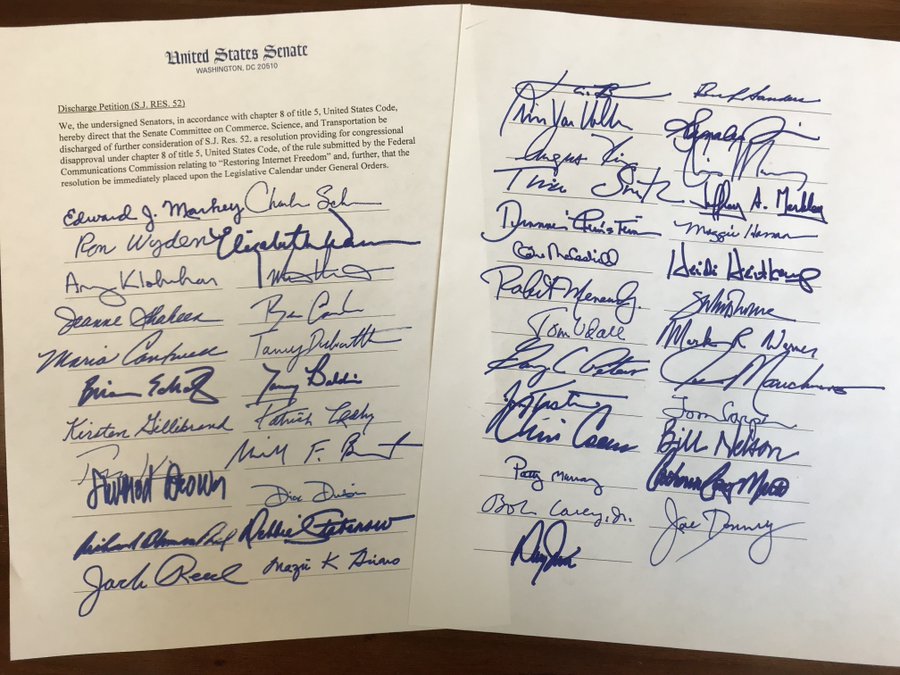begin quote from:
bing.com/news
Democrats in the Senate — and one Republican — took a step Wednesday toward saving net neutrality by forcing the U.S. Senate to vote on whether to overrule a Federal Communications Commission decision to undo open internet protections put in place under President Barack Obama.
The senators are hoping to save the open internet rules through the Congressional Review Act, which allows Congress to veto rulings by federal agencies. Without congressional action, net neutrality supporters say it will just be a matter of time until the Office of Management and Budget approves the change and they go into effect.
On Wednesday, the group of senators, led by Minority Leader Chuck Schumer, D-N.Y., and Sen. Edward J. Markey, D-Mass., filed a discharge petition, a formality needed to trigger a vote on the Senate floor. It was not immediately known when the vote will be scheduled, although the deadline for a vote is June 12.
At its core, net neutrality regulations prohibit internet service providers from engaging in “unfair” practices, including blocking websites, throttling traffic and engaging in paid prioritization, or when an internet provider favors one of site over a competitor’s or offers better access to companies that pay for it.
The issue has split hard-line members of both parties. With a Republican majority, the FCC voted 3-2 in December in favor of returning to a “light touch” approach and ending what the commission’s chairman, Ajit Pai, has called the “micromanaging of the internet.”
While a Senate vote appears to be one of the final chances to stop the FCC rule, getting the necessary votes is going to be an uphill battle.
The good news for open internet supporters is that, at present, they need one more vote in the Senate to pass the resolution. The chamber’s 49 Democrats support it, as does the one Republican who joined them in pushing for a vote on the FCC rule, Sen. Susan Collins of Maine, who is known for crossing party lines on key votes. If Sen. John McCain, a Republican who is currently home in Arizona battling brain cancer, is not present for the vote, a 50-49 decision would send the vote to the House.
But the fight there looks a lot less promising.
With Republicans in the majority, 236-193, in the House, the resolution is unlikely to pass, and even if it does, it would still need President Donald Trump’s signature.
The Democratic senators are getting some help, though, with popular websites like Etsy and OKCupid issuing red alerts on Wednesday, encouraging visitors to contact members of Congress to help save net neutrality.
Following the FCC’s repeal of the Open Internet Order last December, Senate Democrats have been working with open internet advocates by holding meetings around the United States with the hope of rallying grass-roots support.
Even if the Senate vote doesn’t happen, or the resolution doesn’t pass, net neutrality is still showing signs of life at the state level, with a number of states passing net neutrality protections. However, with a patchwork of regulation around the US, and the potential for a challenge at the federal level, the fight for net neutrality is clearly far from over.




No comments:
Post a Comment